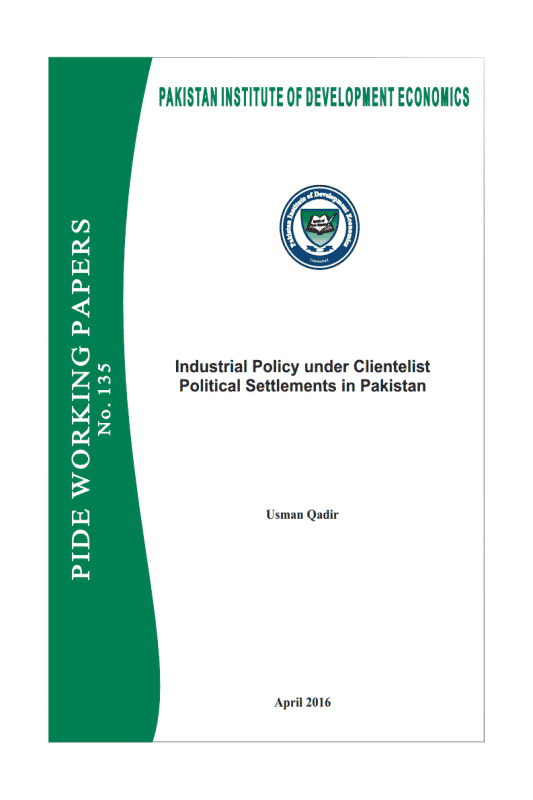Industrial Policy under Clientelist Political Settlements in Pakistan
Developed and developing countries are diverging rather than converging in their growth trajectories in contradiction to theory. Many explanations have been put forward to explain this fact but they fall short of providing an adequate account of the growth experiences of all countries. The key to explaining this divergence lies in the source of growth in developed countries on the one hand—industrial sector development, and the channel employed by developing countries attempting to emulate their experience on the other hand—industrial policy. The implementation of industrial policy in developing countries has been influenced by political economy factors such as political settlements. Against this backdrop, the interplay between political settlements and formulation and implementation of industrial policy will shed light on the experience of developing countries with industrialization, and lessons for the future. The aim of this paper is to identify specific political economy factors that could explain the economic growth performance of Pakistan’s industrial sector, by comparing two distinct periods of industrial development, and in so doing contribute to the policy debate on industrial policy of country. This paper finds that Pakistan’s political settlements have fractured over time and in doing so compromised the ability of the state to effectively monitor and enforce policies designed to influence and direct economic activity.




